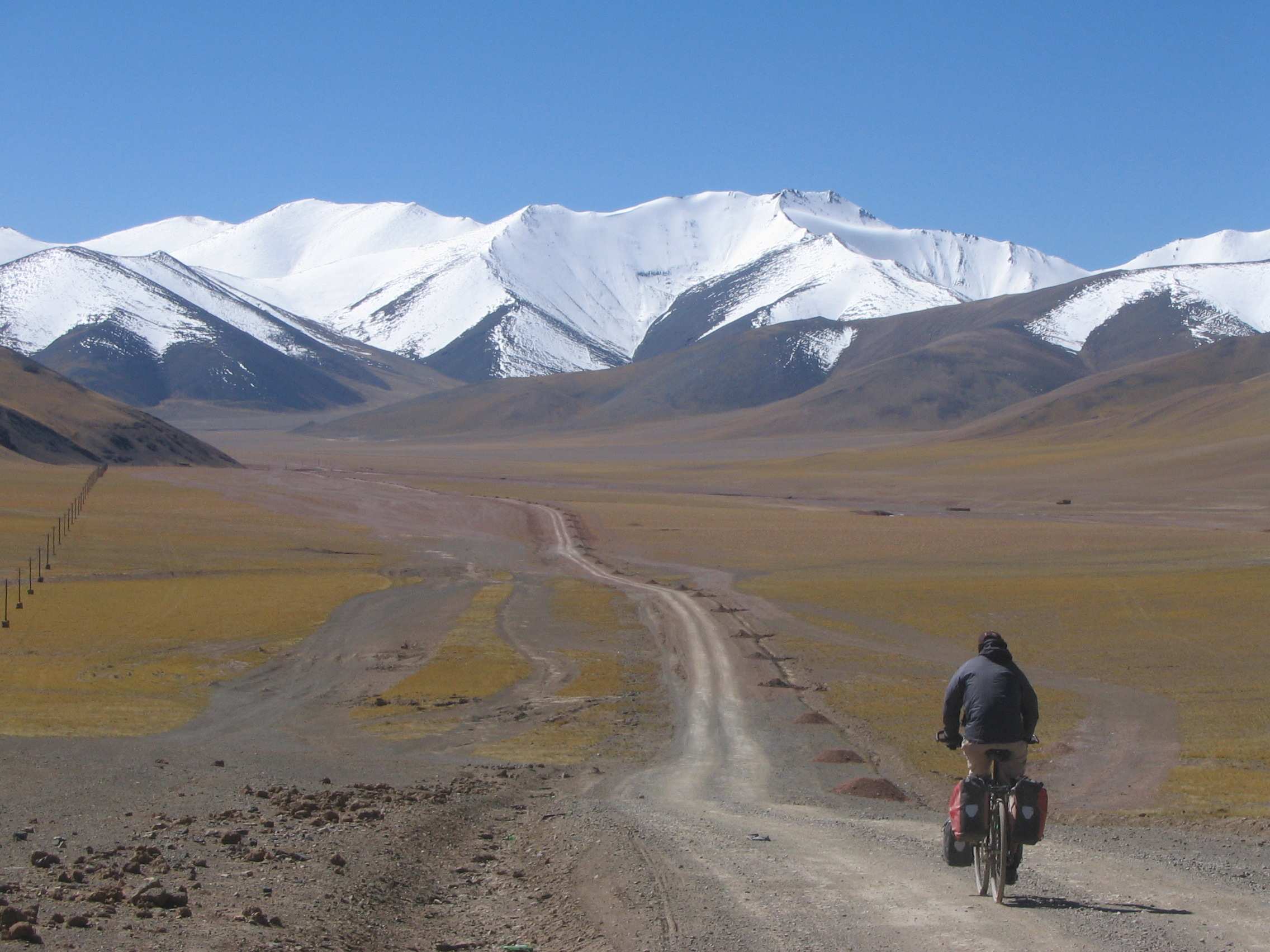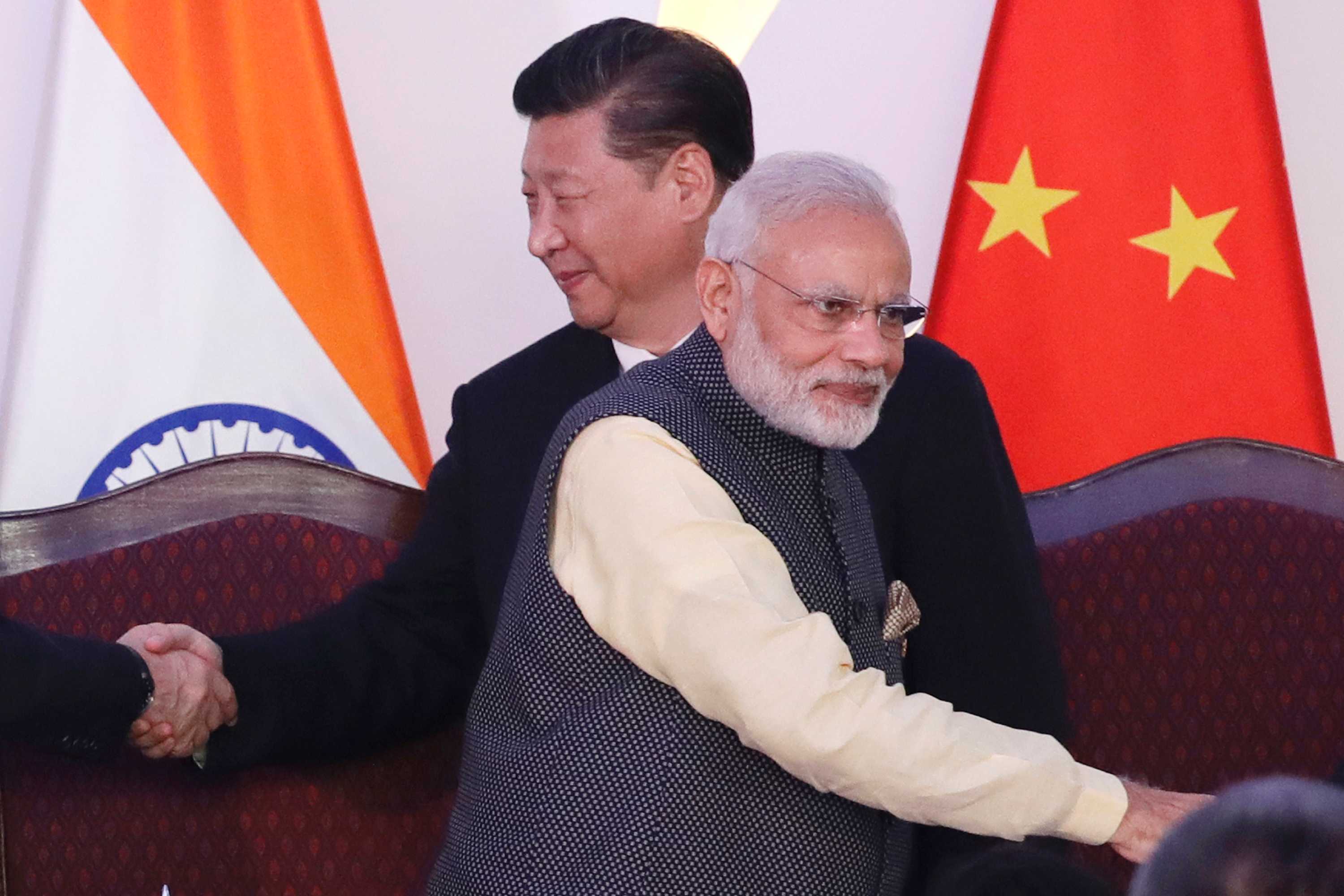India and China reach deal on patrolling contested border region in Himalayas

The disputed area lies in rugged terrain high in the Himalayas.
In short:
India's foreign minister says a four-year stand-off with China over a contested stretch of border has ended.
To avoid clashes, the two militaries would patrol contested points in the Himalayas according to an agreed schedule, an Indian military officer said.
Indian Prime Minister Narendra Modi could hold talks with Chinese President Xi Jinping at the BRICS summit in Russia this week.
India and China have reached a deal on patrolling their disputed frontier to end a four-year military stand-off, according to the Indian foreign minister, paving the way for improved political and business ties between the Asian giants.
The news came on the eve of Indian Prime Minister Narendra Modi's visit to Russia for an October 22–24 summit of the BRICS regional grouping, during which he could hold talks with Chinese President Xi Jinping, Indian officials said.
Relations between the world's two most populous nations — both of them nuclear powers — have been strained since clashes between their troops on the frontier in the western Himalayas — which is largely not demarcated — left 20 Indian and four Chinese soldiers dead in 2020.

Indian Prime Minister Narendra Modi and Chinese President Xi Jinping, seen here at the 2016 BRICS summit, may meet on the sidelines of this year's event.
The two sides had since stopped patrolling several points along the border in the Ladakh region to avoid new confrontations, while moving tens of thousands of new troops and military equipment closer to the freezing highlands.
"We reached an agreement on patrolling, and with that, we have gone back to where the situation was in 2020 and we can say … the disengagement process with China has been completed," Indian Foreign Minister Subrahmanyam Jaishankar said.
"[The] understanding was reached only today.
"We always said that if you disturb the peace and tranquillity, how can the rest of the relationship go forward?"
To avoid clashes, the two militaries would patrol contested points along the border according to an agreed schedule, a senior Indian military officer aware of the details told Reuters.
Both sides would monitor the area in Ladakh to ensure there were no violations, the officer added.
Authorities in Beijing offered no immediate response to India's remarks.
Border pact clears way for meeting
Officials in New Delhi said the pact cleared the path for a likely bilateral meeting between Mr Modi and Mr Xi on the sidelines of the BRICS summit, which would be their first since 2020.
The senior military officer said both sides would pull back their troops a little from current positions to avoid face-offs, but would be allowed to patrol these areas according to a schedule that was being worked out.
Monthly review meetings and regular monitoring of the contested areas by both sides would ensure there were no violations, he added.
Deependra Singh Hooda, a retired senior Indian army officer who was a commander for a part of the China frontier, said that while the two sides would need fresh confidence-building measures, "at least the impasse has been broken".
Slow progress during talks over the past four years to end the stand-off damaged business ties between the two large economies, with New Delhi tightening scrutiny of investment by Chinese firms and halting major projects.
India's tougher vetting of all Chinese investment after the clashes effectively turned away billions of dollars from the likes of car makers BYD and Great Wall Motor, and added more red tape in Indian firms' interactions with Chinese stakeholders.
However, Indian imports from China have surged 56 per cent since the 2020 border clash, nearly doubling New Delhi's trade deficit with Beijing to $US85 billion ($128 billion).
China remained India's biggest source of goods and was its largest supplier of industrial products last year.
Asked about the impact of Monday's pact on trade with and investment from China, Mr Jaishankar said: "It has just happened. There will be meetings to see what the next steps will be. I wouldn't go so fast."
Reuters
By:https://www.abc.net.au/news/2024-10-22/india-and-china-reach-border-deal/104500518(责任编辑:admin)
下一篇:About 11,000 North Korean soldiers are being trained in Russia, Ukrainian officials claim
 Socceroos rescue a point
Socceroos rescue a point  Wallabies thrash Wales 52
Wallabies thrash Wales 52 Jake Paul beats Mike Tyso
Jake Paul beats Mike Tyso Live updates: England vs
Live updates: England vs  US election 2024: Donald
US election 2024: Donald  US election live: Kamala
US election live: Kamala
- ·North Korea's latest weapon agains
- ·Hezbollah says Israel 'cannot impo
- ·Inside the rise of US oligarchs and how
- ·Thailand's worst suspected serial
- ·Tabi shoes are turning heads from Holly
- ·FBI arrests Florida man planning attack
- ·Illegal immigrant gets life sentence fo
- ·Bibles, water, watches and sneakers: Do
- ·North Korea's latest weapon against
- ·Hezbollah says Israel 'cannot impose
- ·Inside the rise of US oligarchs and how i
- ·Thailand's worst suspected serial ki
- ·Tabi shoes are turning heads from Hollywo
- ·FBI arrests Florida man planning attack o
- ·Illegal immigrant gets life sentence for
- ·Bibles, water, watches and sneakers: Dona
- ·US to give Kyiv anti-personnel landmines
- ·An arrest warrant for Benjamin Netanyahu
- ·One of Vietnam's high-profile politi
- ·Shanghai Walmart Attack: A Man Randomly S
- ·South Korean police officers jailed over
- ·Cambodia publicly shames maid deported af
- ·North Korea to use all forces including n
- ·Philippines condemns China attack of Viet
- ·US adds 2 more Chinese companies to Uyghu
- ·North Korean defector steals South Korean
- ·Malaysia deports Cambodian worker for cal
- ·Rebels battle for Myanmar junta’s weste

